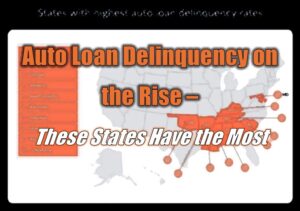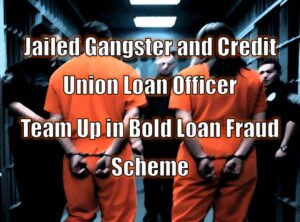A recently released federal case in the Ninth Circuit may have a dramatic effect on the repossession business in the states of Alaska, Arizona, California, Hawaii, Idaho, Montana, Nevada, Oregon, and Washington.
In the case, Windsor Group a “loan servicing company” based in Dallas, Texas, that uses various methods to “maximize recoveries” on their clients’ “delinquent consumer vehicle loans.” argued it is not a debt collector for purposes of general FDCPA application because it is not “in the business of debt collection and does not regularly collect any debts.”
The court summarized the facts as follows. Windsor Group entered into a service agreement with Ally Financial to produce a debtor’s personal information—in this case, that personal information was the location of a particular vehicle. Windsor Group was a third party hired in order to obtain personal information needed for the creditor apparently for the purpose of collecting a debt. After locating an individual or item, a Windsor Group skip tracer would either arrange for repossession or transfer the case to the creditor to work out payments. Mr. Cannon, a Windsor skip tracer successfully found Mr. Shannon in the process of locating the assigned vehicle, and then proceeded to contact him at his work place numerous times. Windsor Group’s purpose was to aid or facilitate the collection process.
The court found that the parties agreed that Windsor Group’s activities did not constitute direct debt collection. Instead, the dispute focused on the question of whether Windsor Group regularly engaged in attempts to indirectly collect debts, and if so, whether Mr. Cannon’s (Windsor Skip tracer’s) contact with the plaintiff, Mr. Shannon was a violation of the FDCPA.
Everyone in the case agreed that there was not a lot of case law on the issue to guide the court in its decision. Therefore, the court turned to two Ninth Circuit cases which laid out important principles for determining whether an entity has engaged in indirect debt collection. The court found that those two cases strongly suggests that skip tracing when used to aid or facilitate the collections process brings that service under the scope of the FDCPA.
The court ruled that Windsor was a “Debt Collector” that is Subject to the Fair Debt Collection Practices Act (FDCPA.) stating that skip tracers, repossession-remarketing services, and repossession agencies are not among the six categories explicitly listed as excluded from debt-collector status under the FDCPA.
The court further found that Windsor Group failed to adequately support its argument that repossessions were squarely outside the scope of the FDCPA with any binding legal authority. Windsor Group relied almost exclusively on Pflueger v. Auto Finance Group, Inc. Pflueger initially opined that repossession agencies “fall outside the ambit of the FDCPA except for the provisions of § 1692f(6),” but it did so without applying the principles laid out in Romine v. Diversified Collection Servs., Inc.. Specifically, Pflueger did not determine whether repossession agencies are services “that aid or facilitate the collection process,” a consideration that Romine emphasizes. Rather, while exclusively relying on cases outside of the Ninth Circuit, Pflueger summarily concluded that repossession agencies are not debt collectors. Pflueger’s analysis is not entirely consistent with Romine’s, which refused to draw a bright line defining particular services as “debt collectors,” and rather instructed that “an organizational label is insufficient to insulate a party from liability under [the FDCPA]” and that “determination would depend upon the nature of the activities in the individual case.” Additionally, the court noted that Pflueger is not binding authority on this Court while Romine is. For these reasons, the Court declines to follow Pflueger, and rejects Windsor Group’s contention that the FDCPA did not apply to it because it labels itself as a repossession agency.
The complete case can be found at (2014 U.S. Dist. LEXIS 32259), Shannon v Windsor Equity Group, Inc. SHANNON_V._WINDSOR
This analysis is provided by
Mike Howk
Recovery Specialist Insurance Group
703-365-0199











I do believe the FDCPA clearly defines repossession agencies as “enforcing a security interest” and I think that in most states if you don’t have a private investigator’s license then you must be skip tracing for collections (as pertaining to what your permissible purpose would be)
If a skip tracer contacts a debtor and put them in contact with a lienholder, then they are acting as a third party debt collector because the actions would be for the purpose of collecting a debt.
Skip tracing is not a unique service. If Windsor had a collectors bond in Texas, then they’re a collection agency for sure. Period. IF Windsor was acting more like a forwarding company then yes, they are still a Texas collection agency. This is not really a new concept. This is what I do for a living. I find people and help a repo company pick it up or help the finance company get paid.
Windsor Group had and may still have a unique model. Campbell v. Triad Financial Corp (2007WL 2973598 N.D. Ohio 2007) is an example of skip tracing agencies not being held to the standard because it was ruled their sole function is to locate property and they do not collect debts. The decision by the court was actually granted as a response to a motion for summary judgment and the claim was dismissed.
Unlike Campbell v Triad Financial and a slew of other cases, Windsor Group was providing a very unique service to keep the vehicle from getting recovered and to collect money by providing a skip trace, locate the debtor and get them on the phone with Ally Financial to collect a debt. In other words, they were an integral part of the collection process and thus, the court ruled the prior case law does not apply.
In my opinion, this case will not have the implications it seems to have at first glance simply because the facts of the case are not known at first glance.